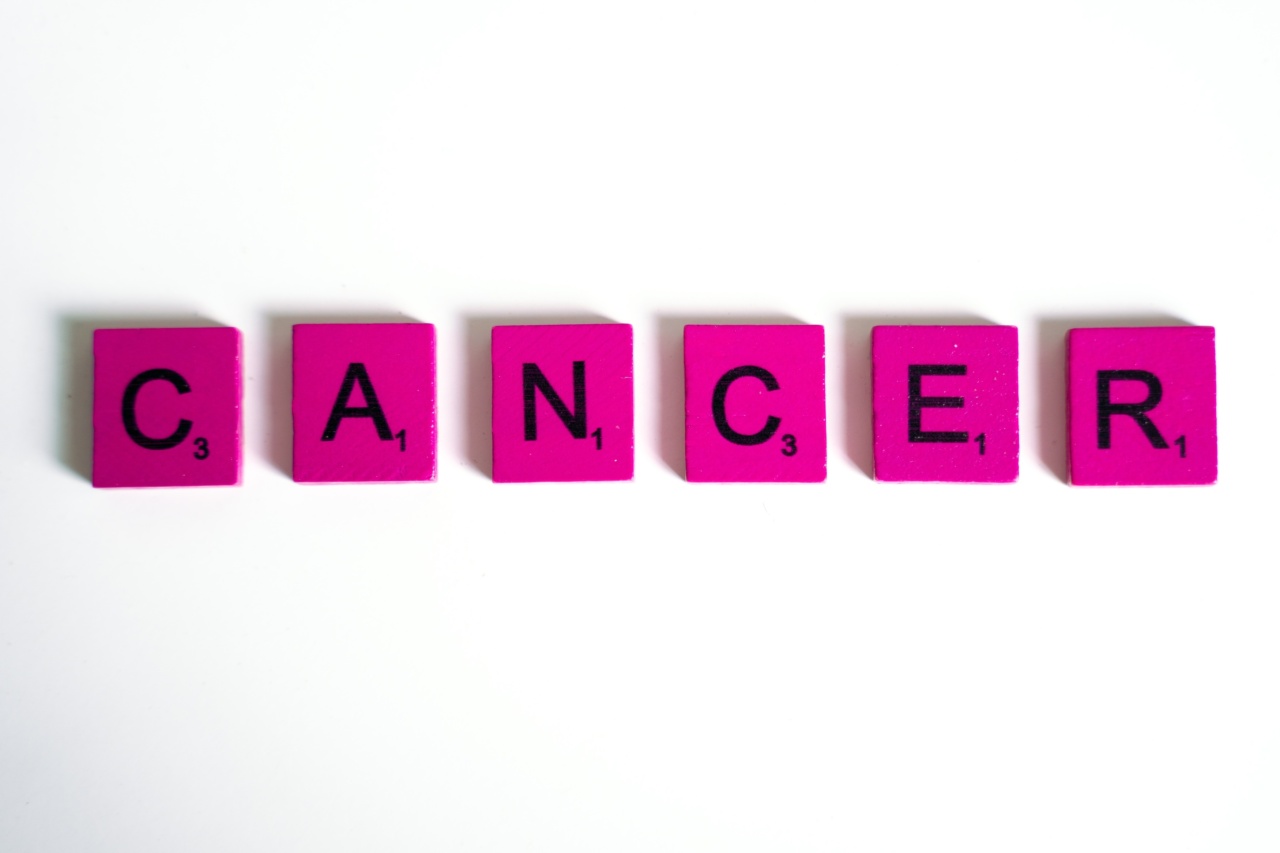A chronic cough is a persistent cough that lasts for more than eight weeks in adults or more than four weeks in children.
It is not uncommon to experience a cough from time to time, especially during the winter months or when you have a respiratory infection. However, if you find yourself coughing persistently for an extended period, it might be a sign of an underlying health condition.
One of the potential causes of a chronic cough is lung cancer. Lung cancer is a serious disease that develops when abnormal cells grow uncontrollably in the lungs.
It is essential to recognize the warning signs and seek medical attention promptly if you suspect that your chronic cough could be related to lung cancer.
Understanding Lung Cancer
Lung cancer is the leading cause of cancer-related deaths worldwide. According to the World Health Organization (WHO), it is estimated that there were 2.09 million new cases of lung cancer in 2018 alone, resulting in 1.76 million deaths.
The disease primarily affects the lungs, but it can also spread to other parts of the body.
There are two main types of lung cancer: non-small cell lung cancer (NSCLC) and small cell lung cancer (SCLC). NSCLC is the most common type, accounting for around 85% of all lung cancer cases. SCLC is less common but tends to spread more rapidly.
Signs and Symptoms of Lung Cancer
Early-stage lung cancer often does not cause noticeable symptoms. As the disease progresses, the following signs and symptoms may manifest:.
1. Chronic Cough
A persistent cough that does not improve or worsens over time is one of the most common signs of lung cancer. This cough may produce phlegm or blood.
If you have been experiencing a chronic cough, it’s crucial to consult a healthcare professional for further evaluation.
2. Shortness of Breath
As lung tumors grow, they can obstruct the airways and make breathing more difficult. Shortness of breath, even during routine activities, might indicate a problem in the lungs that requires medical attention.
3. Chest Pain
Unexplained chest pain that worsens with deep breathing, coughing, or laughing can be a symptom of lung cancer. It may vary in intensity and location depending on the affected area within the lungs.
4. Wheezing
Wheezing is a high-pitched whistling sound that occurs when air flows through narrowed airways. It is often associated with respiratory conditions such as asthma, but it can also be a sign of lung cancer.
5. Weight Loss
Unintentional weight loss is a common symptom among individuals with advanced lung cancer. Cancer cells can alter the way the body metabolizes nutrients, leading to weight loss and muscle wasting.
6. Fatigue and Weakness
Feeling excessively tired or weak, even after adequate rest, can be indicative of underlying health issues. In the case of lung cancer, cancer cells utilize a significant amount of energy, leaving the body feeling exhausted.
7. Hoarseness
Hoarseness refers to the rough or raspy voice caused by the irregular vibration of the vocal cords. While hoarseness can be caused by various factors, including respiratory infections, persistent hoarseness can be a warning sign of lung cancer.
8. Difficulty Swallowing
Lung cancer can sometimes cause compression or obstruction of the esophagus, making swallowing painful or challenging. If you experience difficulties while swallowing, it is essential to consult a healthcare professional for further evaluation.
9. Bone Pain
Lung cancer may spread to other parts of the body, including the bones. Bone metastases can cause severe pain in different areas of the body, such as the back, hips, or ribs.
10. Headaches
If lung cancer spreads to the brain, it can cause persistent headaches. These headaches may vary in intensity and duration and may be accompanied by other neurological symptoms such as seizures or changes in vision.
Conclusion
A chronic cough can serve as an early warning sign of lung cancer, although it is essential to note that chronic coughs can also be caused by various other factors.
If you have been experiencing a persistent cough for an extended period or have any other concerning symptoms, it is crucial to consult a healthcare professional for proper evaluation and diagnosis. Early detection of lung cancer can significantly improve treatment outcomes and increase the chances of successful recovery.




























